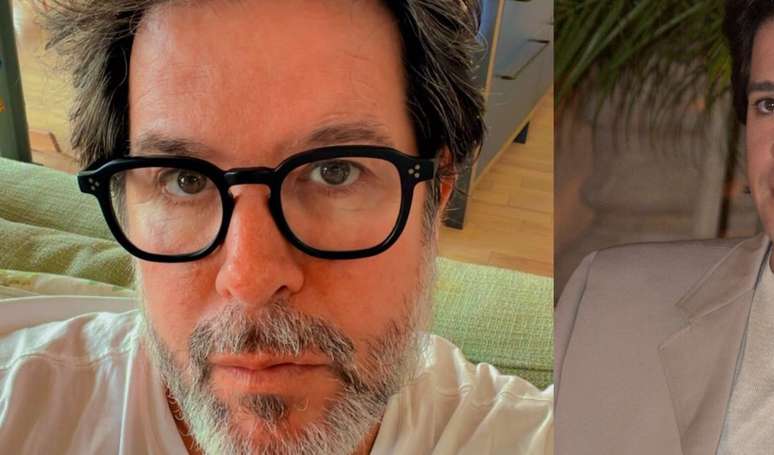New version of the erotic classic hits theaters on July 10 to tell the story of a woman on her sexual discovery journey
Who to enter the movie theater expecting to relive the erotic experience of Emmanuelle From 1974 – with their sunny afternoons, bodies naked framed by a male look and that bourgeois fetish air disguised as sexual liberation – will be disappointed. In the hands of Audrey Diwandirector of The eventthe new version of Emmanuelle It does not want to seduce the public, but to try to imbue it with an exploration of female sexuality that, in the end, is completely shallow.
The sensual and luminous fantasy of the 1970s comes out to give way to the cold silence of a body disconnected from itself. Eroticism, which was once an instrument of liberation or fantasy, becomes a symptom of emptiness and alienation here. The pleasure, which previously sparkled in exotic landscapes, now translates into an uncomfortable absence in the impersonal corridors of a corporate hotel in Hong Kong. Emmanuelle de Diwan She doesn’t want to be desired, she tries, hesitantly and almost mechanically, to feel something again.
Interpreted by Noémie Merlant (Portrait of a young girl on fire), this Emmanuelle embarks on a business trip in search of a pleasure that seems to have completely disappeared from the body. There are no deep transformations or impactful revelations. The desire drags on to minimal gestures, hesitating touches and notes that are not found. The mise-en-scène is cold and aseptic, but this aesthetic accuracy only reinforces the feeling of coldness and distance. The director’s eroticism is cerebral, almost neutral, filled by a silence that does not suggest mystery but apathy. This is what is left when sex is no longer an act of passion or delivery to becoming flawed and disconnected language.
This approach reflects a clear rupture with the legacy of the original film and the mythology it created, with its iconic scenes of choreographed nudity and female bodies shaped for the male look. Instead, Diwan Deliver a look that seeks to be intimate, but ends up becoming distant and disappeared. There is no show here or provocation here. It remains a lost woman trying to rebuild the bridge between body and desire in a world where everything – even sex – seems to have been converted into a significant product.
Even the intimate encounters that arise throughout the film are marked by emotional numbness. The character surrenders, but does not recognize himself; The camera does not erotic these scenes or idealize them, they just show how desire can be a failed attempt to fill a void. Sex does not fulfill its traditional narrative function: it does not approach, does not resolve conflict, does not cause pleasure. It only serves to illustrate the collapse of connections, whether physical, emotional or symbolic.
The performance of Merlanthowever sensitive, it cannot save this frozen portrait from eroticism. His contained and introspective interpretation reveals not an inspiring muse, but a suspended body, to the drift and disconnected from himself. His search is silent, almost invisible, reflecting an erased yearning. When he finally climaxes – in a long and almost ritual sequence – he does not bring expected liberation or ecstasy. Instead, it emerges as a brief and contained flash, a body that tries to meet again, cell by cell – as the director herself detailed us in an exclusive interview – but that the camera keeps distance, as respected the privacy of something that can no longer be captured or explained by the look of others.
Besides failing to provoke or seduce, Emmanuelle stumbles precisely on what should be its central point: the exploitation of female sexuality. Instead of diving into the complexities, contradictions and nuances of the desire of the contemporary woman, the film is limited to a shallow, almost decorative surface that avoids any real provocation. Female sexuality is treated as a vague concept, disconnected from experience, reduced to mechanical gestures and dispersed looks, unable to convey authenticity or transforming power. This limited view reinforces one of the film’s greatest flaws: the attempt to translate a deeply intimate and multifaceted experience into aesthetically polished but emotionally empty images.
In short, this new Emmanuelle It is the melancholy portrait of an era in which eroticism has lost its provocative power. We live in a saturated time of hypersexualized images, exposed bodies and plasticized intimacy, and yet desire became opaque, diffuse and inaccessible. Diwan Captures this opacity with aesthetic accuracy, but delivers a movie that does not seduce, transforming eroticism in the classic into a version devoid of any true provocation or sensuality.
Also read:CineSesc will display restored copies of Tarantino classics, Sofia Coppola and more
What was the best movie of 2025 so far? Vote for your favorite!
- Anora
- Conclave
- Perfect escort
- Flower
- The brutalist
- Mickey 17
- Victory
- Sinners
- Thunderbolts*
- Man with h
- Karate Kid: Legends
- Premonition 6: Blood Ties
- Lilo & Stitch
- Mission: Impossible – The Final Set
- How to train your dragon
- Extermination: Evolution
- Elio
- M3gan 2.0
- F1: The Movie
- JURASSIC WORLD: restart
Source: Rollingstone
Rose James is a Gossipify movie and series reviewer known for her in-depth analysis and unique perspective on the latest releases. With a background in film studies, she provides engaging and informative reviews, and keeps readers up to date with industry trends and emerging talents.







